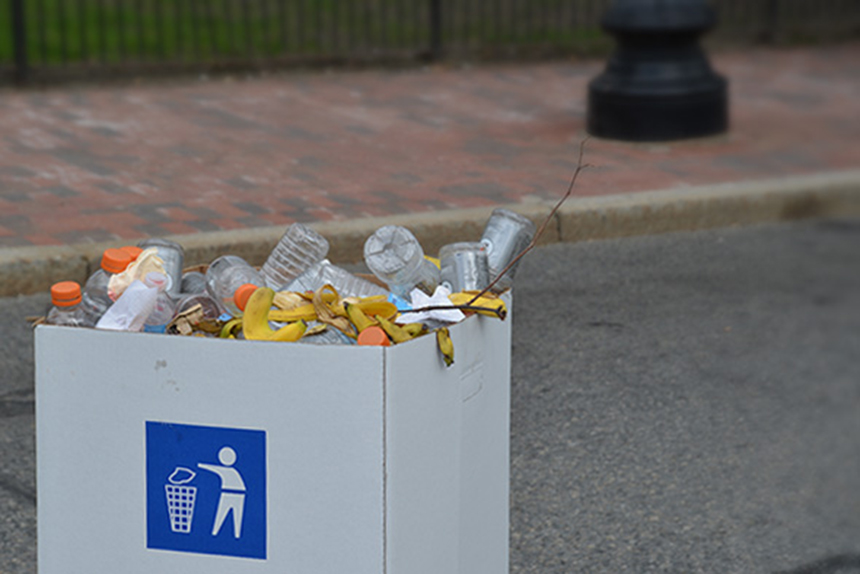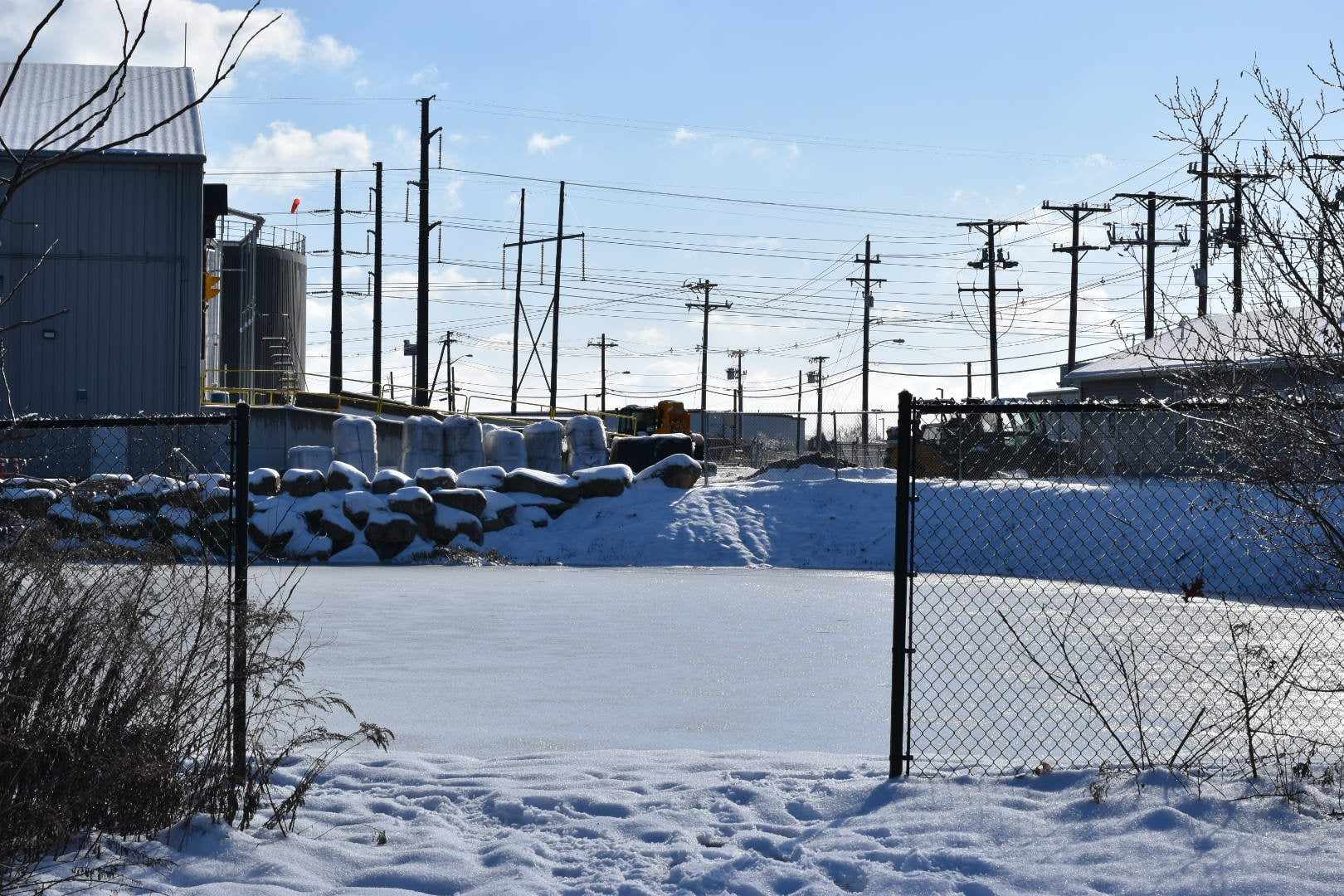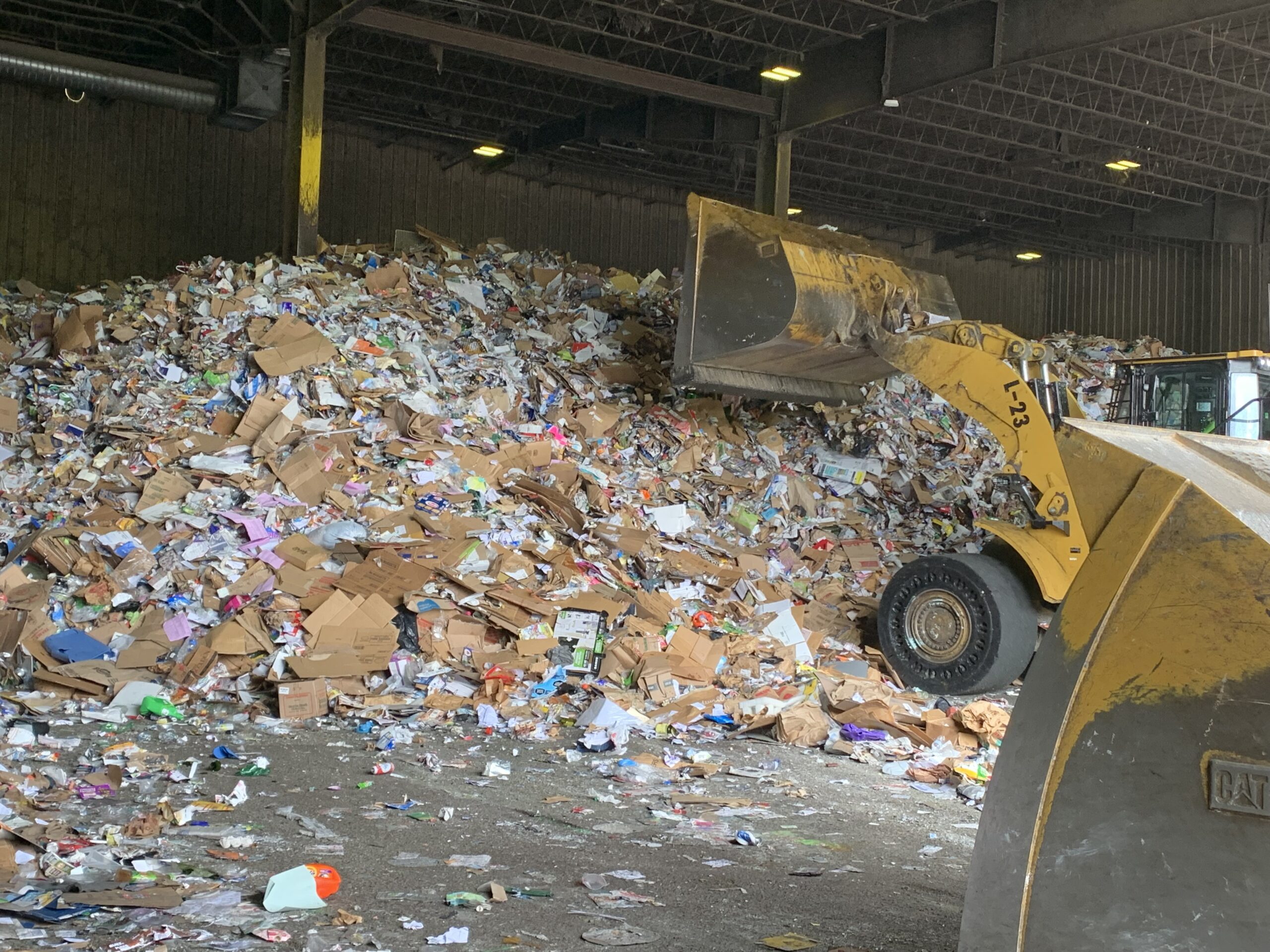Groundwork Laid for Compost Facility on Brownfield
November 28, 2019
PROVIDENCE — “This compost is pretty fresh, and you can still see bits of food scrap, like this is a piece of egg shell,” says Katie Murphy of Groundwork Rhode Island, picking out a small bit of shell.
We’re at Groundwork Garden, a community-garden/compost facility tucked next to a parking lot on Ring Street near Broadway. Murphy walks over to a large pile of what looks like mulch and scoops up a handful, noting “this is the more mature compost.” This pile smells like pu-erh tea, earthy and smoky with a hint of old apple, and little to no indication that it’s broken down food scrap.
Groundwork Rhode Island, a nonprofit dedicated to creating healthier and more resilient urban communities, has been collecting food scrap and turning it into nutrient-rich compost for about two years, with Murphy and the organization’s high-school green team pedaling a bicycle-trailer combo to collect people’s food scrap.
“We took over a program called Harvest Cycle, because we thought composting is an important thing that worked well with our mission, which has to do with environmental justice, access to green space and all that comes with it,” Murphy says.
The program has about 120 residential customers and three businesses, and the collection area stretches from downtown Pawtucket to the East and South sides of Providence.
“As of now we just give our compost away for free,” says Murphy, the program’s coordinator. “But we’re hoping to change that and help the community at the same time.”
To do so, Groundwork Rhode Island recently partnered with the West Elmwood Housing Development Corporation to turn a brownfield on Fuller Street into a full-fledged compost facility with the capacity to create high-quality, affordable compost.
“Compost is actually one of the biggest expenses for farmers,” Murphy says. “If you’re a small organic farmer — well I was talking to someone from Hocus Pocus Farm [in Chepachet] and she said they spent $7,000 last year on compost.”
Part of the reason compost is so expensive is that it’s surprisingly difficult to make.
“It costs a lot of money to make compost,” she says. “In terms of large-scale production, you need a front-end loader, certain types of equipment that can range from $20,000 to $150,000. It’s expensive to produce, and not something people are used to paying top dollar for, and people who need it aren’t necessarily the people who have high margins.”
Groundwork Rhode Island has also partnered with Southside Community Land Trust to create a possible business model for the new facility, which would involve having two rates for compost: the market rate and a subsidized rate.
“We want to make it something that people who need it to grow food can afford to get,” Murphy says.
After completing brownfield remediation of the site, the compost center will be designed by James McSweeney of Compost Technical Solutions, with an education center designed by DownCity Design.
Currently, Groundwork Rhode Island is fundraising to obtain the required match money needed as part of a grant from the Rhode Island Department of Environmental Management to create the new compost center.




RI Compost Conference and Trade Show March 12 2020 at Rhode Island College